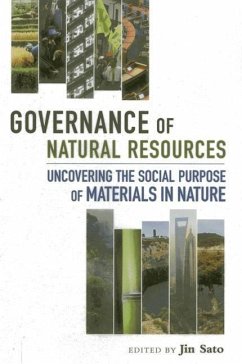The way society controls natural resources is the foundation of both economic development and environmental conservation. The primary motive for natural resource management has been the development and production of marketable commodities, and institutional structures have been shaped accordingly. Governance of Natural Resources asks that we reconsider the very concept of resources and how we view them. Scholarly communities and policy experts have a tendency to divide natural resources into categories, hindering holistic understanding. Similarly, the stakeholders themselves-the state, businesses, and citizens-are conceived monolithically, making it difficult to grasp how business interests, intra-bureaucratic politics, and civil society movements influence policy outcomes. This book examines the sociopolitical dynamic generated by the environment and its attendant resources: how nature becomes a resource and how this process in turn shapes our vision of society. It deploys a case study approach in examining the interactions among bureaucratic institutions, rural communities, national leaders, and business elites, allowing for a more nuanced analysis. Particular emphasis is on how resources become the subject of conflict-but also opportunities for cooperation-and how different societies might establish more sustainable interactions with nature. This book will be primarily of interest to professionals-particularly development practitioners-and academics, but all those who have a keen interest in environmental issues will find much to recommend. Graduate courses on environmental management should also find this useful as a source book.
Hinweis: Dieser Artikel kann nur an eine deutsche Lieferadresse ausgeliefert werden.
Hinweis: Dieser Artikel kann nur an eine deutsche Lieferadresse ausgeliefert werden.








